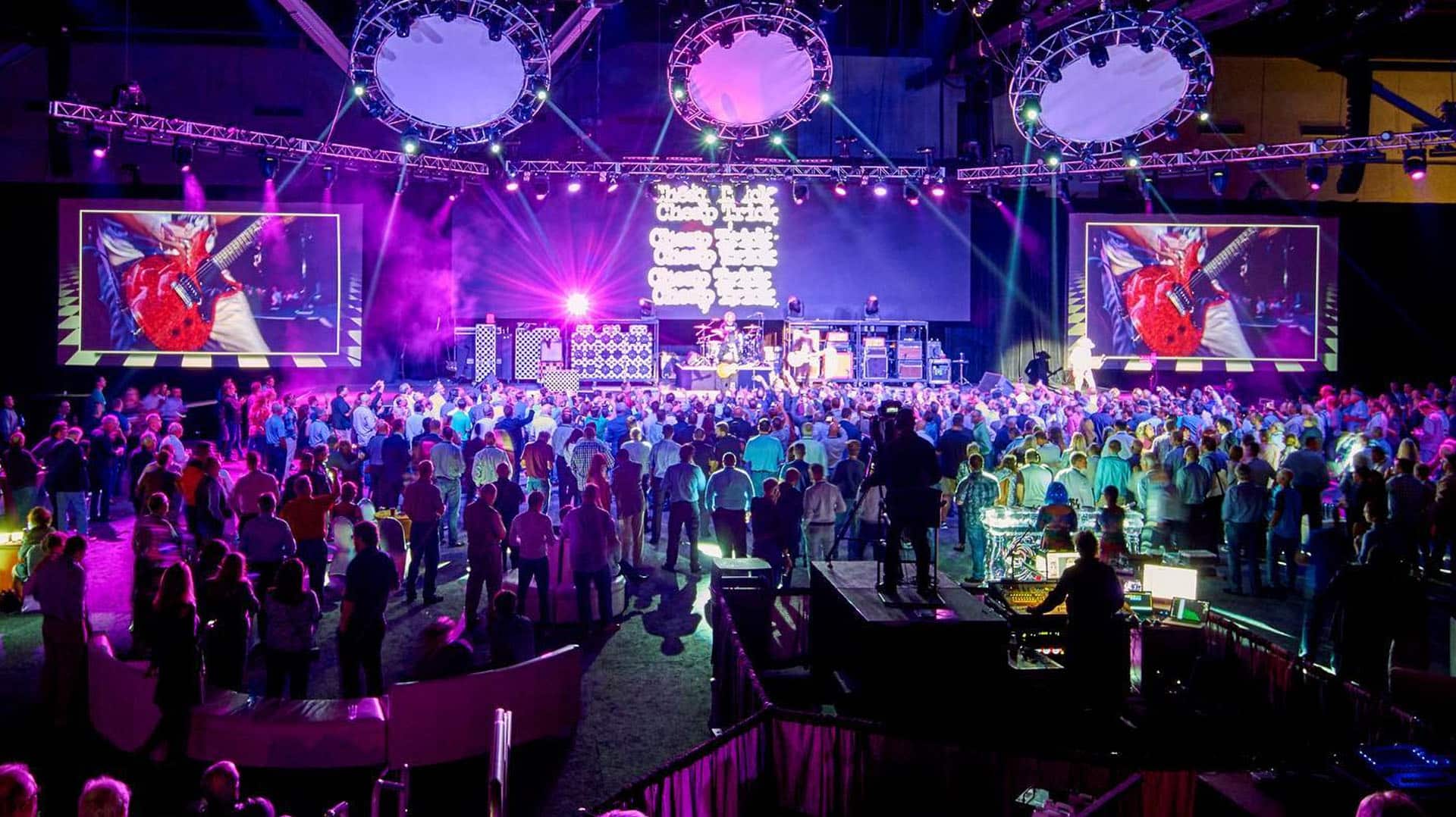Behind the Scenes: The Magic of Successful Event Productions
Behind the Scenes: The Magic of Successful Event Productions
Blog Article
Understanding How Occasions Manufacturing Functions: A Comprehensive Summary of the Process
The details of event manufacturing demand a methodical technique that incorporates multiple phases, each playing a crucial duty in the overall success of an event. From the first planning and concept growth to the meticulous coordination of logistics, every aspect must align flawlessly to attain the wanted result. Comprehending the subtleties of budgeting, resource allowance, and on-site monitoring is vital for any professional in this field. As we explore these parts additionally, it becomes noticeable that the procedure is not just about implementation yet also regarding continuous enhancement and critical evaluation. What understandings can we glean from each stage?
Preliminary Preparation and Concept Development
Reliable preliminary planning and idea advancement act as the structure for successful occasions manufacturing. This phase includes specifying the event's purpose, target audience, and desired outcomes. A clear vision is vital; it guides all subsequent decisions and aids straighten the group's efforts towards a common goal.
During this phase, brainstorming sessions can be important. Engaging stakeholders, consisting of clients, enrollers, and prospective guests, cultivates a joint environment that creates ingenious concepts. Furthermore, detailed marketing research ought to be conducted to recognize patterns, preferences, and prospective obstacles.
When the concept is developed, it is vital to produce a comprehensive occasion rundown. This summary must consist of the event's theme, layout, and essential tasks. Establishing a timeline is just as essential, as it assists to handle target dates and tasks properly.
Budgeting and Resource Appropriation
With a solid concept in area, attention needs to turn to budgeting and resource appropriation, which are important parts in carrying out the occasion successfully. A well-defined spending plan functions as a roadmap, outlining all anticipated costs and offered sources. It starts with identifying taken care of and variable expenses, consisting of venue service, catering, modern technology, staffing, and marketing. Each classification should be thoroughly determined to avoid overspending and to guarantee that funds are designated suitably.
Resource allocation involves assigning both financial and human resources to various tasks and parts of the occasion. Prioritization is vital; essential elements should obtain appropriate financing while less vital elements may require an extra traditional technique. In addition, backup preparation is important-- assigning a portion of the budget for unanticipated costs can reduce financial threats.
In enhancement, effective interaction among team participants relating to budget restraints cultivates collaboration and technology. This advertises the responsible use of resources and encourages imaginative remedies to stay within spending plan. Eventually, a critical approach to budgeting and resource allowance prepares for an effective event, making it possible for planners to concentrate on supplying an unforgettable experience for participants while maintaining economic integrity.
Logistics and Sychronisation
Browsing the complexities of logistics and sychronisation is vital for the smooth implementation of any occasion. This phase includes thorough planning and organization to make certain that all components operate in consistency. Key elements consist of place selection, transportation plans, and the organizing of various tasks.
This consists of recognizing the format, accessibility points, and offered resources. Collaborating these aspects needs partnership with vendors, providers, and transportation services to guarantee timely distributions and pick-ups.
An additional crucial aspect is the development of a comprehensive timeline that lays out all logistical elements leading up to the event. This timeline works as a roadmap, describing vital turning points and due dates for tasks such as tools arrangement, catering services, and audiovisual installations. Regular interaction with all stakeholders is crucial to attend to go now any potential concerns proactively.
Execution and On-Site Management
Effective implementation and on-site administration are crucial for transforming careful plans into reality throughout an event. This stage includes the seamless control of different components, making sure that every detail lines up with the established vision. On-site supervisors play an essential role, working as the central point of interaction among suppliers, personnel, and stakeholders. Their capacity to make real-time decisions can significantly influence the event's success.
A well-defined timetable is important, offering as a roadmap for all activities. Event supervisors should ensure that configuration takes place on time, adhering to timelines for audio checks, providing deliveries, and visitor arrivals. Reliable problem-solving abilities are likewise crucial; unexpected challenges can develop, calling for fast thinking and versatility to preserve the event's flow.
This degree of involvement not just improves the general experience however also reflects the professionalism and reliability of the event team. Eventually, successful execution and on-site monitoring joint on in-depth preparation, effective interaction, and a dedication to providing a phenomenal occasion for all included.

Post-Event Analysis and Feedback
The conclusion of any kind of event exists not only in its implementation but likewise in the thorough assessment that adheres to. Post-event evaluation is vital for determining the general success of the occasion and identifying areas for enhancement. This procedure typically includes event responses from various stakeholders, including attendees, vendors, and team members, to obtain an extensive viewpoint on their experiences.
To structure the analysis, event coordinators often utilize studies and meetings, focusing on essential efficiency indicators such as guest satisfaction, logistical performance, and budget plan adherence. Assessing this data permits coordinators to examine whether the occasion satisfied its objectives and to understand the strengths and weak points of the execution.
By methodically attending to feedback and carrying out adjustments, occasion experts can boost their techniques, inevitably leading to even more successful and impactful occasions. In conclusion, post-event assessment is a crucial step in the occasion manufacturing process that makes certain recurring development and quality in future ventures (Event click here to read Productions).
Conclusion

The complexities of occasion production demand a systematic technique that incorporates multiple stages, each playing an important role in the general success of an event.With a strong idea in location, interest should transform to budgeting and resource allocation, which are vital elements in performing the occasion successfully.Resource allotment entails designating both financial and human sources to numerous tasks and elements of the event. Inevitably, a calculated approach to budgeting and resource allowance lays the groundwork for an effective occasion, making it possible for visit coordinators to concentrate on delivering a remarkable experience for attendees while preserving financial stability.

Report this page